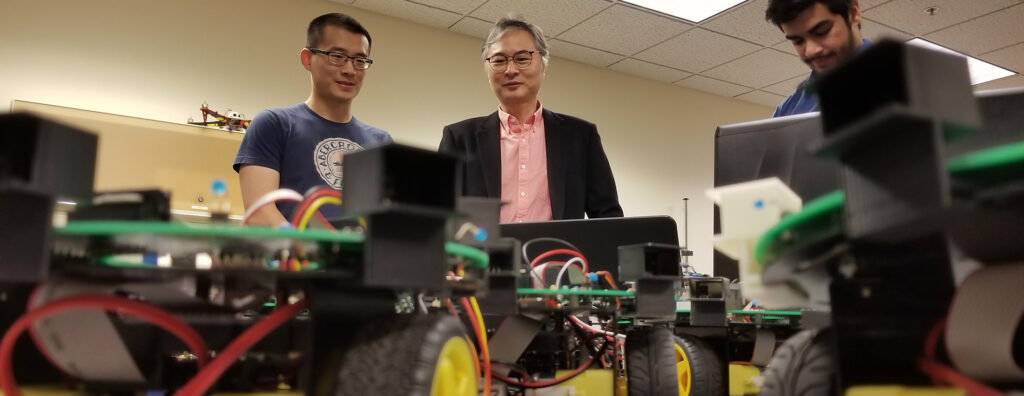Autonomous and cyber-physical systems can learn changes in the environment and adapt their behavior in response to unanticipated events. ECS faculty conduct cutting-edge research to enhance the autonomy of various cyber-physical systems, ranging from self-driving vehicles to aerial systems to cognitive wireless networks to the internet of things (IoT). These research activities help improve the sustainability, intelligence, and resilience of critical infrastructure and systems that are vital to the well-being of our society.

Building autonomy and machine intelligence in drones for various sustainability applications such as structure inspection, sustainable agriculture, and disaster relief is an active research area being pursued at ECS. One collaborative effort of ECS researchers advances smart, healthy, and decarbonized built environments by integrating sensing, interpretation, and predictive control as a comprehensive solution. Another cross-disciplinary effort seeks to improve resilience against natural or man-made threats in various cyber-physical systems.
An example of active research in this area is Dr. Hoque’s research on IoT systems defense against unforeseen adversarial threats by developing automated security solutions to prevent unexpected/unsafe operations on IoT devices. Another example is the work led by Dr. Velipasalar that employs AI for classifying 3D point clouds, which enables autonomous navigation of unmanned aerial or ground vehicles.
Some notable ECS news stories in this area include:
- Occupancy Sensors to Regulate Energy Use
- Professor Amit Sanyal awarded grant to study the integration of autonomous systems in wildland fire management
- ECS Faculty Awarded $1.4 Million from Energy Department to Advance Building Energy Modeling
- Real-time Tracking of Wildfires
- Professor Pramod Varshney and Students work with Industry Leaders on Drone Use Research
Please explore the departmental webpages or the researchers’ websites below for more information.









